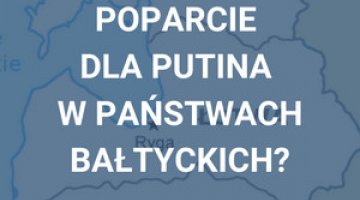Analyses
The Russian-Latvian transit consortium
In April Russian Railways took over 50% of shares in the Latvian railways company Liepajas naftas tranzits (LNT) through the intermediary of its subsidiaries (including Multimodal BV registered in Amsterdam). The financial aspects of this transaction were not disclosed. The company changed its name to Euro Rail Cargo.
Commentary
- Taking over shares of the Latvian carrier marks the beginning of an expansion for Russian Railways on the market of railway transport to Latvian ports - mainly Riga and Ventspils. The company is planning to provide comprehensive services for Russian exporters operating in the transit corridor between Asia and Europe via Latvian ports. LNT holds a licence for railway transport through Latvia. Only three other companies in Latvia have similar licences: the state-owned LDz Cargo, which has so far been serving 75% of Latvian rail transport, and two private companies. At present the 25 transit trains from Russia (but also from Belarus and Kazakhstan) that regularly run and transport mainly oil products and coal to Europe does not run smoothly and this generates losses for Russian exporters. The fact that the Russian carrier has taken control of this route will lead to losses for the Latvian state-owned company, but it stands a chance of strengthening ties between Russian exporters and Latvian ports.
-
Russian Railways' efficient co-operation with representatives of Latvia's key port-controlling businesses, as well as with a part of Latvia’s political elite will make it easier for the Russian monopoly to assume a dominant position on the Latvian carrier market.This transaction is not transparent, and behind it are the families of two Latvian oligarchs who have also been involved in politics for years: the former prime minister Andris Skele, who has for years been linked with the transit business, and the former transport minister Ainars Slesers, who controls business in the port of Riga (the Latvian Corruption Prevention and Combating Bureau, KNAB, is currently carrying out an investigation on the operations of his companies doing business in the port)). A third oligarch Aivars Lembergs, the mayor of Ventspils (where the country’s largest port is located) is also involved. Just ahead of the finalisation of the LNT transaction, the Latvian media reported that the head of Russian Railways Vladimir Yakunin visited Latvia at the invitation of the head of the state-owned railway company, Ugis Magonis. Magonis held a birthday party which was attended by many Latvian politicians, including the ministers for transport and the economy. Since March 2014 Yakunin (who is a close aide of Vladimir Putin’s) has been on the list of persons banned from entering the US. The lobbying of Latvian politicians and diplomats has spared him similar sanctions from the EU.
- Despite cold political relations between Latvia and Russia following the Russian invasion of Ukraine and mutual economic sanctions, Russia remains interested in transit through Latvian ports and terminals since they have the best locations given the interests of natural resources exporters. Furthermore, good relations between business people from the two countries and a section of Latvia’s political elite are also important as they facilitate the operations of Russian companies in Latvia.




